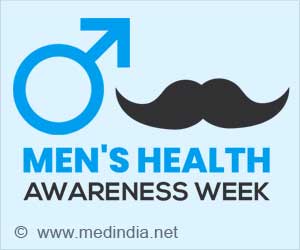Prioritize your health and well-being by addressing key areas and understanding follow-up recommendations.
- Men's Health Week emphasizes the importance of prioritizing well-being and staying informed about important health matters, even if you currently feel unconcerned about certain conditions or diseases
- To make the most out of your doctor's appointment, be prepared and ask the right questions
- This includes discussing vaccination requirements, addressing recommended lifestyle changes, and understanding the need for follow-up appointments
Productive Doctor's Appointment
Just like you, your doctor is likely swamped with a busy schedule. To accommodate all scheduled patients, healthcare professionals often have limited time for each consultation. While a quick appointment may seem convenient, the pressure to maintain efficiency might prevent them from addressing all your concerns. The best approach to optimize your time together? Be well-prepared and know which questions to ask.The Three Essential Questions Include:
Question 1: Do I Need any Vaccines?Vaccine requirements go beyond childhood immunizations. As adults, staying up to date with booster vaccines, such as HPV, and new vaccines that have emerged in recent years is crucial. Protection against diseases like chickenpox, shingles, and measles can be obtained through appropriate vaccinations (1✔ ✔Trusted Source
Vaccines for measles, mumps, rubella, varicella, and herpes zoster: immunization guidelines for adults
Go to source).
Additionally, receiving the tdap shot every ten years safeguard against whooping cough, tetanus, and diphtheria. It's also advisable to consider getting a flu shot annually to prevent influenza and pneumonia. Discussing your vaccination options with your doctor will help alleviate any overwhelming concerns.
Question 2: If I Change One Thing about my Lifestyle, What Should it be?
At the start of your visit, your doctor will likely inquire about your habits while reviewing your medical records. Questions regarding smoking, drinking, and exercise are common. It's improbable for anyone to have a flawless lifestyle, given time constraints.
Hence, Question #2 becomes crucial: What is the one lifestyle change you recommend?
Insufficient sleep and inadequate exercise are common health pitfalls for many men. It is advised to aim for a minimum of eight hours of sleep and incorporate regular physical activity into your routine. Exercise not only benefits your physical health but also allows for mental relaxation, reducing stress levels. Additionally, you may need to address dietary and drinking habits. Prioritizing the suggested lifestyle change will enable better decision-making, rewarding yourself appropriately while pushing yourself to achieve more.
Question 3: When Should I Come Back for a Follow-Up?
If you underwent blood tests, urine samples, biopsies, or other laboratory procedures, you may need to return to the office for further examination or schedule a call to discuss the results. Even if your doctor assures you that everything is fine, it's essential to inquire about the recommended timeframe for your next visit. According to Dr. Peterson, even the healthiest individuals should have an annual checkup with their primary care doctor. Therefore, establish a plan for regular checkups to maintain your well-being.
Understand the Need for Follow-up Appointments and Establish a Plan for Regular Checkups
By taking charge of your doctor's visit and being well-prepared, you can ensure a productive and informative session. Remember to ask the right questions, discuss vaccination requirements, address lifestyle changes, and understand the importance of follow-up appointments.It is important to understand and prioritize health and well-being as it is the key to leading a fulfilling and healthy life.
Reference
- Vaccines for measles, mumps, rubella, varicella, and herpes zoster: immunization guidelines for adults - (https://pubmed.ncbi.nlm.nih.gov/22086887/)
Source-Medindia












